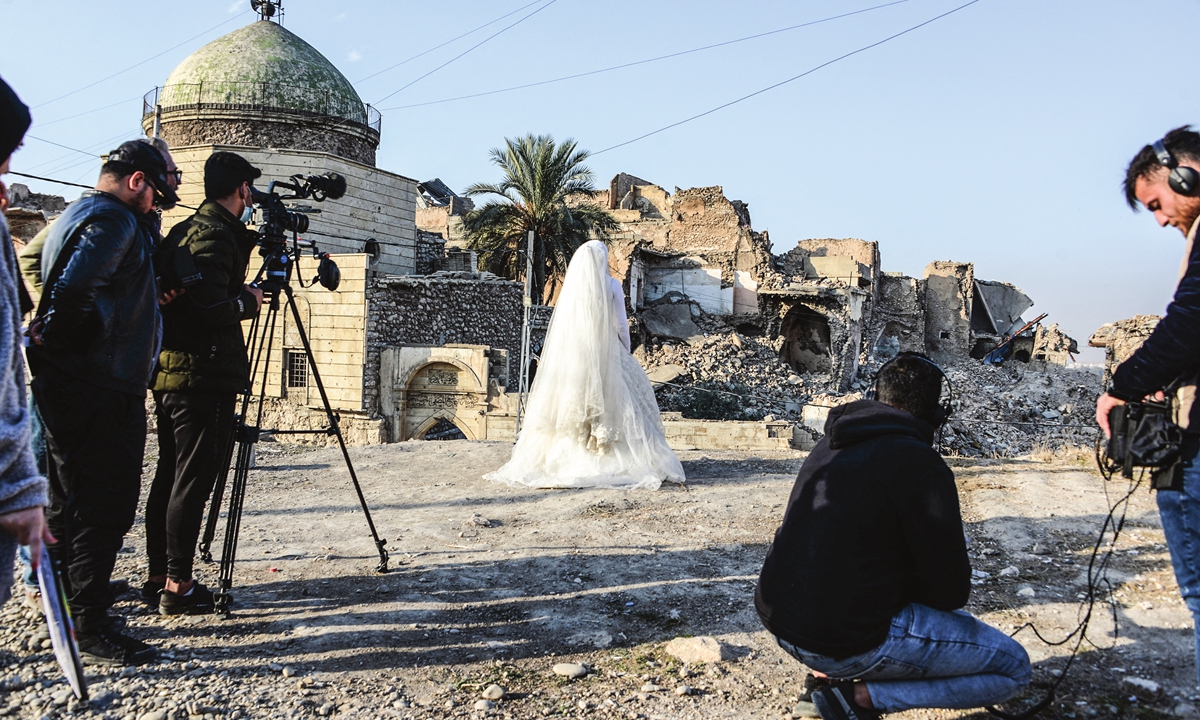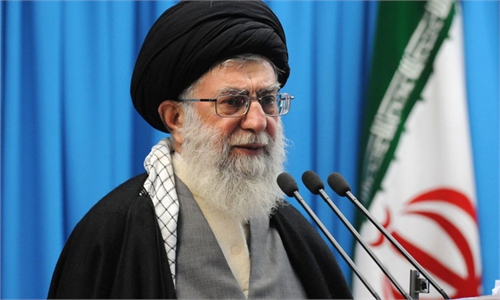
Film school students work on a scene with an actress dressed as a bride in the war-ravaged northern Iraqi city of Mosul on December 15, 2021. Photo: AFP
Five years after it emerged from the Islamic State group's jihadist rule, Iraq's once thriving cultural center of Mosul has regained a semblance of normalcy despite sluggish reconstruction efforts.
However, like in much of oil-rich but war-ravaged Iraq, ramshackle public services and deep economic difficulties continue to hamper many people's daily lives.
Ghazwan Turki is just one of Mosul's many residents who struggle to make ends meet in the former IS stronghold, where the jihadists declared the establishment of a "caliphate" in 2014.
Mosul urgently needs "job opportunities for families that have no income, to improve their living conditions," Turki said.
The father of 12 in his 40s, who lived for years in displacement camps, juggles shifts as a taxi driver and different odd jobs.
"We have to borrow money and get into debt to cover half of our family's needs," said Turki, who shares a single-story house with his brother.
While acknowledging "progress" in rebuilding efforts, he described "overcrowded schools, where there are 60 or 70 students to a classroom."
Iraqi forces with the help of a US-led coalition wrested back Mosul in July 2017 after gruelling street fighting, and Iraq claimed victory over IS on December 9 in 2017.
Signs of reconstruction dot the city of 1.5 million, with workers constructing a new bridge, and cafes and restaurants buzzing.
But many buildings and public hospitals are still in ruins, and in the Old City, some areas are still just piles of rubble.
Mosul, Iraq's second city, has historically been among the Arab world's most culturally significant settlements, a hub for trade and home to mosques, churches, shrines, tombs and libraries.
Today, in the wider Nineveh province, a third of people are estimated to be unemployed and 40 percent live in poverty, according to local authorities.
Mayor Amin al-Memari said the city was working on several "strategic projects," but funding remained a key obstacle. There is also "a significant shortage in the health sector," he said, with more hospitals needed.
AFP

